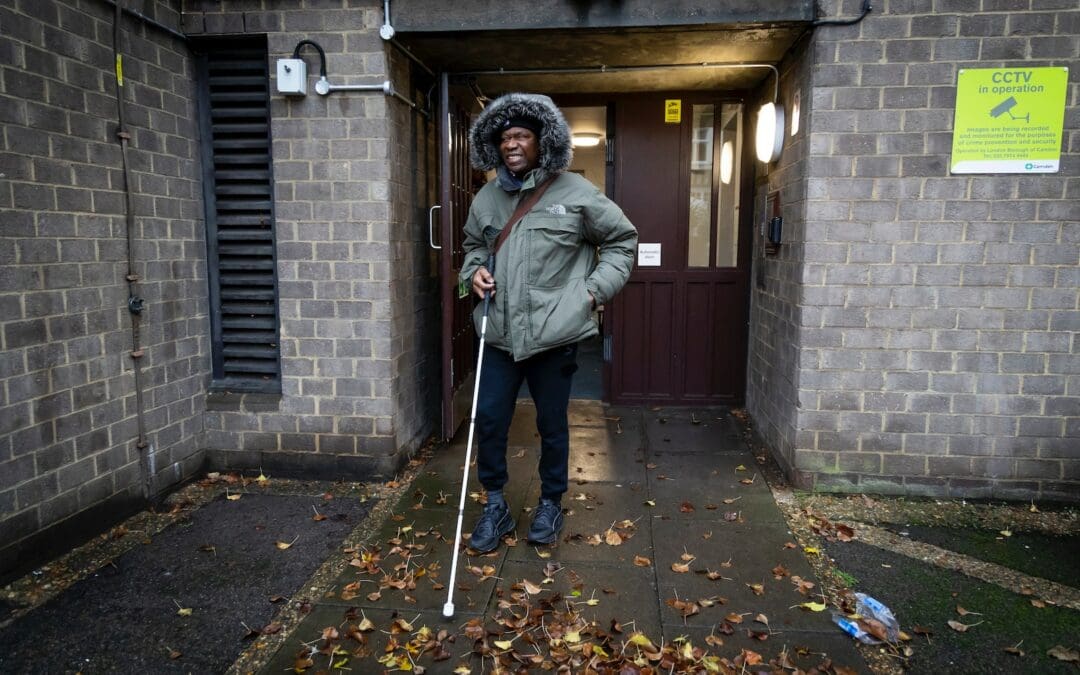
Alzheimer’s Support and Services for Seniors and Caregivers in San Antonio
A Comprehensive Guide

A Comprehensive Guide

Navigating Resources and Community Aid

A Comprehensive Overview for Local Elderly Residents

Essential Signs for San Antonio Families

Understanding Eligibility and Benefits

A Comprehensive Guide to AACOG and Bexar Area Agency on Aging Services

The American Rescue Plan Act (ARPA) has been a beacon of hope for many, particularly vulnerable populations such as older adults.

Determining when an individual becomes a senior citizen is not a one-size-fits-all scenario.

Embracing the Golden Years with Elegance and Health

Unlock Savings on Everyday Expenses

Engaging & Enjoyable Pastimes

Whether it’s due to physical limitations, health concerns, or simply a desire for a quieter lifestyle, many seniors find themselves looking for ways to keep themselves occupied while at home.

Aging in place is a popular option for seniors, but it often requires modifications to the home to ensure safety and accessibility.

With the right guidance and resources, it is possible to maintain a healthy and active lifestyle well into your golden years.

Photo by Merylove Art on Unsplash
Music and art therapy have been shown to provide numerous benefits for seniors, including improving cognitive abilities, reducing stress and anxiety, and promoting social interaction. As people age, they may experience a decline in physical and mental health, which can lead to feelings of isolation and depression. Music and art therapy can help seniors maintain their mental and emotional well-being, while also providing a fun and engaging activity.
Studies have shown that music therapy can be particularly effective for seniors with dementia or Alzheimer’s disease. Listening to music can help reduce agitation and improve behavioral issues that are common in the middle-stages of the disease. Even in the late-stages of Alzheimer’s, a person may be able to tap a beat or sing lyrics to a song from childhood. Music provides a way to connect, even after verbal communication has become difficult. Art therapy, on the other hand, can help seniors express themselves non-verbally and stimulate their brains. Seniors can improve their cognitive abilities, including memory and problem-solving skills, by participating in various art-related activities such as painting, drawing, or sculpting. Moreover, art therapy can positively impact emotional well-being, helping seniors cope with stress, depression, and anxiety.
Understanding Music and Art Therapy
Music and art therapy are two forms of therapy that have been found to be particularly beneficial for seniors. They are forms of therapy that involve the use of creative expression to promote emotional, physical, and mental well-being.
Music Therapy
Music therapy involves the use of music to address the physical, emotional, cognitive, and social needs of individuals. It is a form of therapy that is facilitated by a certified music therapist who has received specialized training in the use of music for therapeutic purposes.
Some of the benefits of music therapy for seniors include the reduction of stress levels, the promotion of relaxation, and the improvement of overall mood. Studies have shown that music therapy can also help to improve cognitive function, memory, and communication skills in seniors with dementia or Alzheimer’s disease [1].
Art Therapy
Art therapy involves the use of art to promote emotional, physical, and mental well-being. It is a form of therapy that is facilitated by a certified art therapist who has received specialized training in the use of art for therapeutic purposes.
Seniors who participate in art therapy can improve their cognitive abilities, including memory and problem-solving skills, by participating in various art-related activities such as painting, drawing, or sculpting. Moreover, art therapy can positively impact emotional well-being, helping seniors cope with stress, depression, and anxiety [2].
In conclusion, music and art therapy are two forms of therapy that can provide numerous benefits for seniors. They are creative and engaging ways to promote emotional, physical, and mental well-being in seniors.
[1] Alzheimer’s Association [2] Senior Helpers
The Role of Music and Art Therapy in Senior Care
Music and art therapy have been proven to have numerous benefits for seniors. These therapies can help improve their quality of life, promote emotional well-being, and foster a sense of community and connection.
Seniors often face a variety of challenges as they age, such as physical limitations, cognitive decline, and social isolation. Music and art therapy can help address these challenges by providing an outlet for self-expression and creativity. These therapies can also help seniors connect with others and build a sense of community.
Caregivers can play an important role in facilitating music and art therapy for seniors. They can help seniors find local resources, such as community centers or senior centers, that offer these types of programs. Caregivers can also encourage seniors to participate in these activities and provide the necessary support to help them get the most out of the experience.
Music therapy can involve listening to music, singing, or playing an instrument. It has been shown to improve mood, reduce stress and anxiety, and promote relaxation. Art therapy, on the other hand, involves various forms of artistic expression, such as painting, drawing, or sculpting. It can help seniors cope with emotional issues, such as depression and anxiety, and improve their overall well-being.
In conclusion, music and art therapy can be valuable tools for promoting the health and well-being of seniors. Caregivers can play an important role in helping seniors connect with these types of programs and get the most out of the experience. By incorporating music and art therapy into senior care, caregivers can help seniors maintain their independence and improve their overall quality of life.
Benefits of Music Therapy for Seniors
Music therapy has gained recognition recently for its powerful abilities to promote overall health and wellness, especially for seniors. Music therapy is a form of therapy that uses music to address physical, emotional, cognitive, and social needs of individuals. It can be used to treat a variety of conditions, including dementia, depression, anxiety, and chronic pain.
Cognitive and Memory Enhancement
Studies have shown that music therapy can help improve cognitive function in seniors. It can stimulate the brain, helping to improve memory, attention, and concentration. According to a study published in the Journal of Alzheimer’s Disease, music therapy can also slow the deterioration of language and speech skills within those who have dementia. Music therapists can help retrain individuals with speaking by using musical vocalization.
Emotional and Mood Regulation
Music therapy can also help regulate emotions and mood in seniors. It can help reduce symptoms of depression, anxiety, and stress. According to a study published in the Journal of Psychosocial Nursing and Mental Health Services, music therapy can help promote relaxation, calm, and self-esteem in seniors.
Physical Health Improvements
Music therapy can also promote physical health in seniors. It can help improve motor skills, coordination, and balance. Music therapy can also be used to promote movement and dancing, which can help seniors stay active and engaged. According to a study published in the Journal of Gerontological Nursing, music therapy can also help reduce pain and improve sleep quality in seniors with chronic pain.
In conclusion, music therapy can have a variety of benefits for seniors, including cognitive and memory enhancement, emotional and mood regulation, and physical health improvements. It is a safe and effective therapy that can be used to treat a variety of conditions and promote overall health and wellness in seniors.
Benefits of Art Therapy for Seniors
Art therapy can be a powerful tool for seniors to express themselves, boost their cognitive function, and engage with their community. Here are some of the key benefits of art therapy for seniors:
Expressive Outlet and Emotional Support
Art therapy provides seniors with a safe and creative outlet to express their emotions and feelings. It can help them cope with depression, anxiety, and stress, and provide a sense of relaxation and calm. Through painting, writing, or other forms of creative expression, seniors can explore and process their emotions in a supportive and non-judgmental environment.
Cognitive Stimulation and Motor Skills Enhancement
Art therapy can also stimulate cognitive function and enhance motor skills in seniors. It can improve attention, language, and memory, and help seniors maintain mental stimulation and sharpness. Engaging in creative activities like painting, sculpting, or drawing can also help seniors maintain and develop their motor skills.
Social Engagement and Community Building
Art therapy can also provide an opportunity for seniors to connect with others and build a sense of community. It can foster social interaction and socialization, which can be especially important for seniors who may be isolated or lonely. Through art therapy, seniors can engage with their peers and connect with others who share similar interests and experiences.
Overall, art therapy can be a valuable tool for seniors to express themselves, boost their cognitive function, and engage with their community. By providing a safe and supportive environment for creative expression, art therapy can help seniors improve their emotional well-being, enhance their cognitive abilities, and build meaningful connections with others in their community.
How Caregivers and Therapists Can Implement Music and Art Therapy
Implementing music and art therapy for seniors can be a great way to help them improve their quality of life. Caregivers and therapists can work together to develop a treatment plan that incorporates music and art therapy into a senior’s daily routine.
One way to implement music and art therapy is to work with a certified music therapist. These professionals can create a curriculum that is tailored to a senior’s interests and abilities. They can also provide encouragement and support throughout the therapy process.
Caregivers and therapists can also work together to incorporate music and art therapy into a senior’s daily routine. For example, playing calming music during meal times or art activities after breakfast can help create a calming and enjoyable environment for seniors.
Another way to implement music and art therapy is to encourage seniors to participate in group activities. This can include singing in a choir or participating in an art class. Group activities can help seniors feel more connected to others and provide a sense of community.
Overall, implementing music and art therapy for seniors can be a great way to help them improve their quality of life. By working with a certified music therapist and incorporating therapy into a senior’s daily routine, caregivers and therapists can help seniors feel more engaged and connected to the world around them.
Conclusion
In conclusion, music and art therapy are effective interventions that can improve the well-being and quality of life of seniors. Engaging in creative expression can reduce stress levels, promote relaxation, and uplift moods, which can have a positive impact on overall mental health and emotional well-being.
Music therapy has been shown to enhance the mood and emotional well-being of seniors. Listening to music can help seniors feel happier, calmer, and less anxious. Singing and participating in music activities can also improve self-esteem and provide a sense of accomplishment. Silent Discos are a fun and unique music activity for seniors.
Art therapy is also an effective intervention for seniors. It provides a sense of purpose and can help seniors feel a sense of accomplishment. Engaging in creative expression can also be relaxing and reduce stress levels.
Overall, music and art therapy are valuable tools for improving the well-being and quality of life of seniors. By providing opportunities for creative expression and promoting relaxation, these interventions can help seniors feel happier, more fulfilled, and more connected to others.

Fortunately, there are many travel destinations that cater specifically to seniors with mobility issues, making it possible for them to enjoy all the benefits of travel without sacrificing their comfort or safety.

It is important to have a solid plan in place before retirement to ensure a comfortable life post-retirement.

Tech gadgets can have a range of benefits for seniors, including improved connections with family and friends, increased independence, and improved health and wellbeing.

One way to level up the nutritional value of your meals is to better understand whole grains and why they are important for a heart-healthy diet.

3 Stylish Safety and Mobility Products

Stay in control to help prevent heart disease, heart attack and stroke

Whether it’s pride, pain, inspiration, nostalgia or a combination of sentiments, any time veterans tell their stories, there’s a good chance they’ll evoke strong emotions from both the tellers and their audiences.

Photo by Online Marketing on Unsplash
Navigating health insurance can be a daunting task, especially for seniors who may be facing unique health challenges. With so many options available, it can be overwhelming to determine which plan is best suited for your needs. Fortunately, there are resources available to help seniors navigate the complex world of health insurance.
This comprehensive guide aims to provide seniors with the knowledge and tools necessary to make informed decisions about their health insurance. From understanding the different types of plans available to deciphering confusing medical bills, this guide covers all aspects of navigating health insurance for seniors. Whether you’re new to Medicare or looking to switch plans, this guide will help you make the best decision for your health and budget.
Understanding Health Insurance
Navigating the world of health insurance can be overwhelming, especially for seniors. It is important to have a basic understanding of health insurance to make informed decisions about your coverage.
What is Health Insurance?
Health insurance is a contract between you and an insurance company that helps cover the cost of medical care. It is designed to protect you from unexpected, high medical costs. You pay a monthly premium to the insurance company, and in exchange, the company pays for some or all of your medical expenses.
Types of Health Insurance Plans
There are several types of health insurance plans, including private insurance and insurance plans offered through the health insurance market. Private insurance is purchased directly from an insurance company, while insurance plans offered through the health insurance market are purchased through the government-run marketplace.
Some common types of health insurance plans include:
Health Maintenance Organization (HMO)
Preferred Provider Organization (PPO)
Point of Service (POS)
High Deductible Health Plan (HDHP)
Each type of plan has its own benefits and drawbacks, and it is important to understand the differences between them when choosing a plan.
Health Insurance Coverage
Health insurance coverage refers to the services that are covered by your insurance plan. This can include doctor visits, hospital stays, prescription drugs, and more. It is important to review your plan’s coverage to ensure that it meets your healthcare needs.
Choosing a Health Insurance Plan
When choosing a health insurance plan, it is important to consider your healthcare needs and budget. You should review the plan’s coverage, deductibles, copays, and premiums to determine which plan is the best fit for you.
In conclusion, understanding health insurance is crucial for seniors to make informed decisions about their healthcare coverage. By understanding the different types of plans, coverage options, and costs, seniors can choose a plan that meets their healthcare needs and budget.
Health Insurance for Seniors
Navigating health insurance can be challenging, especially for seniors. Fortunately, there are several options available to help cover the costs of medical care. One of the most common options for seniors is Medicare, a federal health insurance program primarily designed for people aged 65 and older.
Medicare has several parts, including Part A, which covers hospital stays, and Part B, which covers doctor visits and outpatient services. Part D covers prescription drug costs, and Medicare Advantage plans are an alternative to traditional Medicare.
For those who choose traditional Medicare, they may also want to consider purchasing a Medigap policy. Medigap policies are supplementary insurance plans that help cover the costs that traditional Medicare does not cover, such as deductibles and copayments.
It’s important to note that while Medicare can provide significant coverage, it may not cover all medical costs. Seniors may want to consider additional insurance options, such as long-term care insurance, to help cover the costs of extended care.
Navigating health insurance options can be overwhelming, but seniors can find help through the Senior Health Insurance Counseling Program (SHIP). SHIP provides accurate and objective counseling, assistance, and advocacy relating to Medicare, Medicaid, Medicare supplements, Medicare Advantage, long-term care, and more.
In summary, seniors have several health insurance options available to them, including Medicare, Medigap policies, and additional insurance options like long-term care insurance. It’s important to carefully consider each option and seek help from resources like SHIP to ensure that seniors have the coverage they need.
Eligibility and Enrollment
Navigating health insurance can be a challenge, especially for seniors. Understanding eligibility requirements and the enrollment process is crucial to ensure that you have the coverage you need. Here is what you need to know:
Eligibility
To be eligible for Medicare, you must be a U.S. citizen or a permanent legal resident who has lived in the United States for at least five years and be 65 years of age or older. If you are disabled and under 65, you may also be eligible for Medicare. Disabled Americans who receive Social Security Disability Insurance (SSDI) benefits are automatically enrolled in Medicare after 24 months of receiving benefits.
If you have end-stage renal disease (ESRD), you may also be eligible for Medicare, regardless of age. However, you must meet certain requirements, such as requiring regular dialysis or a kidney transplant.
Enrollment
The enrollment process for Medicare can be overwhelming, but it is important to understand the different enrollment periods. There are three main enrollment periods:
Initial Enrollment Period (IEP): This is the first time you can enroll in Medicare. It starts three months before your 65th birthday and ends three months after your birthday month.
General Enrollment Period (GEP): If you missed your IEP, you can enroll during the GEP, which runs from January 1 to March 31 each year. However, you may have to pay a penalty for late enrollment.
Open Enrollment Period (OEP): This period runs from October 15 to December 7 each year. During this time, you can make changes to your coverage, such as switching from Original Medicare to a Medicare Advantage plan or vice versa.
To enroll in Medicare, you can apply online, by phone, or in person at your local Social Security office.
Conclusion
Navigating health insurance eligibility and enrollment can be a complicated process, but it is essential to ensure that you have the coverage you need. Understanding the different enrollment periods and eligibility requirements can help you make informed decisions about your healthcare coverage.
Types of Health Insurance Plans
When it comes to health insurance plans, seniors have several options to choose from. Understanding the differences between these plans can help seniors make informed decisions about their healthcare coverage. Here are some of the most common types of health insurance plans:
Health Maintenance Organizations (HMOs)
HMOs are a type of managed care plan that typically require members to choose a primary care physician (PCP) who acts as a gatekeeper for all medical services. To see a specialist or receive any type of medical care, members usually need a referral from their PCP. HMOs generally have lower out-of-pocket costs than other types of plans, but members have less flexibility in choosing their healthcare providers.
Preferred Provider Organizations (PPOs)
PPOs are another type of managed care plan, but they offer more flexibility than HMOs. Members can usually see any provider within the plan’s network without a referral, and they may also be able to see out-of-network providers for an additional cost. PPOs generally have higher out-of-pocket costs than HMOs, but they offer more choice and flexibility in healthcare providers.
Point of Service (POS) Plans
POS plans are a hybrid of HMOs and PPOs. Like HMOs, members usually need to choose a PCP who acts as a gatekeeper for medical services. However, like PPOs, members can usually see out-of-network providers for an additional cost. POS plans generally have higher out-of-pocket costs than HMOs, but they offer more flexibility in choosing healthcare providers.
Private Health Insurance Plans
Private health insurance plans are offered by private companies and are not part of a government-sponsored program like Medicare. These plans can vary widely in terms of coverage and cost, so it’s important to carefully review the plan details before enrolling.
Health Savings Accounts (HSAs)
HSAs are a type of savings account that can be used to pay for qualified medical expenses. To be eligible for an HSA, you must have a high-deductible health plan (HDHP). Contributions to an HSA are tax-deductible, and the funds in the account can grow tax-free. HSAs can be a good option for seniors who want to save money on healthcare costs and have more control over their healthcare spending.
Overall, seniors should carefully consider their healthcare needs and budget when choosing a health insurance plan. It’s also important to review the plan details carefully and ask questions if anything is unclear.
Costs and Budgeting
Navigating health insurance costs can be overwhelming, especially for seniors who may be living on a fixed income. Understanding the different costs associated with health insurance and creating a budget can help seniors better manage their healthcare expenses.
Premiums
Premiums are the monthly fee paid to an insurance company for coverage. It is important to note that the premium amount can vary depending on the type of plan and the level of coverage. Seniors may be able to find plans with lower monthly premiums, but it may come with higher out-of-pocket costs.
Deductibles
Deductibles are the amount of money that must be paid out-of-pocket before insurance coverage kicks in. Seniors should consider their healthcare needs when choosing a deductible amount. Plans with lower deductibles may have higher monthly premiums, while plans with higher deductibles may have lower monthly premiums.
Out-of-Pocket Costs
Out-of-pocket costs are expenses that are not covered by insurance and must be paid by the patient. These costs can include deductibles, coinsurance, and copayments. Seniors should be aware of the out-of-pocket maximum, which is the maximum amount they will have to pay in out-of-pocket costs for the year.
Cost-Sharing
Cost-sharing refers to the portion of healthcare costs that are split between the insurance company and the patient. This can include deductibles, coinsurance, and copayments. Seniors should review their plan’s cost-sharing requirements to understand their financial responsibility.
Financial Assistance
Seniors who are struggling to pay for healthcare expenses may be eligible for financial assistance. This can include tax credits, tax deductions, and other forms of financial aid. It is important to research and understand the eligibility requirements for these programs.
Budgeting
Creating a budget can help seniors manage their healthcare expenses. Seniors should consider their monthly premiums, deductibles, and out-of-pocket costs when creating a budget. It is also important to factor in unexpected healthcare expenses that may arise.
Navigating health insurance costs can be challenging, but understanding the different costs associated with coverage and creating a budget can help seniors manage their healthcare expenses and maintain their financial well-being.
Coverage and Benefits
When it comes to health insurance for seniors, it’s important to understand the coverage and benefits that are available to you. Medicare is the federal health insurance program for people aged 65 and older, certain younger people with disabilities, and people with end-stage renal disease. Medicare automatically offers comprehensive healthcare coverage to those who qualify.
Coverage Levels
Medicare is divided into four parts: Part A, Part B, Part C, and Part D. Part A covers hospital stays, hospice care, and skilled nursing facility care. Part B covers doctor visits, medical care, and preventive services. Part C, also known as Medicare Advantage, is an alternative to traditional Medicare and offers additional benefits such as dental care and vision care. Part D covers prescription drugs.
Coverage Limitations
While Medicare provides comprehensive coverage, it does have some limitations. For example, Medicare does not cover long-term care, which includes assistance with daily activities such as bathing, dressing, and eating. It’s important to understand these limitations and plan accordingly.
Healthcare Services
Under Medicare, seniors have access to a wide range of healthcare services, including preventive care, prescription drugs, and medical care. Preventive care includes services such as flu shots, cancer screenings, and annual wellness visits. Prescription drug coverage is available through Part D, and medical care includes services such as doctor visits, hospital stays, and hospice care.
Dental and Vision Care
While dental care and vision care are not covered under traditional Medicare, some Medicare Advantage plans do offer these benefits. It’s important to carefully review the benefits and costs of these plans to determine if they are right for you.
Medical Expenses
While Medicare covers a significant portion of healthcare expenses, there are still some out-of-pocket costs that seniors may incur, such as deductibles, copayments, and coinsurance. It’s important to understand these costs and plan accordingly.
In summary, Medicare provides comprehensive healthcare coverage for seniors, including hospital stays, doctor visits, preventive care, prescription drugs, and more. However, it’s important to understand the limitations and costs associated with Medicare, as well as the additional benefits that may be available through Medicare Advantage plans.
Understanding Medicare Parts
Medicare is a federal health insurance program for people who are 65 or older, certain younger people with disabilities, and people with End-Stage Renal Disease (ESRD). Medicare is divided into four parts: Part A, Part B, Part C, and Part D. In this section, we will discuss the different parts of Medicare.
Medicare Part A
Medicare Part A is also known as hospital insurance. It covers inpatient hospital care, skilled nursing facility care, hospice care, and home health care. Most people do not have to pay a premium for Part A because they or their spouse paid Medicare taxes while working.
Medicare Part B
Medicare Part B is also known as medical insurance. It covers doctor services, outpatient care, preventive services, and medical equipment. You will pay a monthly premium for Part B, and the amount you pay will depend on your income.
Medicare Part D
Medicare Part D is prescription drug coverage. It is offered by private insurance companies approved by Medicare. Part D helps cover the cost of prescription drugs, and the amount you pay will depend on the plan you choose.
It is important to note that Medicare does not cover all health care expenses. You may need additional coverage, such as a Medicare Supplement Insurance (Medigap) policy or a Medicare Advantage Plan (Part C), to help pay for costs that Medicare does not cover.
In summary, understanding the different parts of Medicare is essential to navigating senior health insurance. Part A covers hospital care, Part B covers medical services, and Part D covers prescription drugs. You may need additional coverage to pay for expenses that Medicare does not cover.
Navigating the Health Insurance Market
Navigating the health insurance market can be a daunting task for seniors. There are many options available, and it can be challenging to determine which plan is the best fit for your needs. However, with some research and guidance, it is possible to find a plan that meets your healthcare needs and budget.
One essential factor to consider when selecting a health insurance plan is the network. The network refers to the group of doctors, healthcare providers, and hospitals that have contracted with the insurance provider to offer services to plan members. It is essential to ensure that the plan you choose includes your preferred doctors and healthcare providers. If you have a specific healthcare provider that you prefer, you may want to consider a plan that includes them in their network.
Another option to consider is a preferred provider organization (PPO) plan. PPO plans offer more flexibility when choosing healthcare providers. You can choose to see providers outside of the network, but you will typically pay higher out-of-pocket costs. However, if you have a preferred doctor or hospital that is not in the network, a PPO plan may be a good option.
When selecting a health insurance plan, it is also crucial to consider the insurance provider. You want to choose a reputable insurance provider that has a good track record of paying claims promptly. You can research insurance providers’ ratings and reviews online to help you make an informed decision.
If you are having difficulty navigating the health insurance market, you may want to consider working with a broker. A broker can help you understand your options and find a plan that meets your specific healthcare needs and budget.
In conclusion, navigating the health insurance market can be overwhelming, but with some research and guidance, it is possible to find a plan that meets your healthcare needs and budget. Consider factors such as the network, preferred doctors, healthcare providers, hospitals, insurance provider, and working with a broker to help you make an informed decision.
Additional Considerations
When navigating health insurance as a senior, there are several additional considerations to keep in mind.
Flexibility
Many seniors may require more flexibility in their health insurance coverage due to changing medical needs. It is important to choose a plan that allows for changes and adjustments as needed.
Affordable Care Act
The Affordable Care Act (ACA) has made significant changes to the healthcare system, including expanding coverage options for seniors. It is important to understand how the ACA affects your healthcare costs and coverage options.
Healthcare Costs
Healthcare costs can be a major concern for seniors, especially those with low incomes. It is important to explore all available options for reducing healthcare costs, including Medicare and Medicaid.
Medicaid
Seniors with low incomes may be eligible for Medicaid, a government program that provides healthcare coverage for those who cannot afford it. It is important to understand the eligibility requirements and coverage options for Medicaid.
Life Insurance
Life insurance can provide financial protection for seniors and their loved ones in the event of unexpected medical expenses or other costs. It is important to consider life insurance as part of your overall financial plan.
Medical Bills
Medical bills can be a major source of stress for seniors. It is important to understand your coverage options and to work with your healthcare provider to manage medical bills.
Penalties
Seniors who do not have health insurance may face penalties. It is important to understand the penalties and to explore all available options for obtaining health insurance coverage.
Pre-existing Conditions
Seniors with pre-existing conditions may face challenges in obtaining health insurance coverage. It is important to understand your coverage options and to explore all available options for obtaining coverage.
Financial Advisor and Tax Professional
Working with a financial advisor and tax professional can help seniors make informed decisions about their healthcare coverage and costs.
Short-term Coverage
Short-term coverage may be an option for seniors who need temporary healthcare coverage. It is important to understand the advantages and limitations of short-term coverage.
Screenings
Screenings can help seniors stay healthy and catch potential health issues early. It is important to understand your coverage options for screenings and to work with your healthcare provider to schedule regular screenings.
Gold
Some health insurance plans offer a “gold” level of coverage, which provides more comprehensive coverage than other levels. It is important to understand the advantages and limitations of gold-level coverage.

Photo by Scott Graham on Unsplash
As people age, they face unique legal challenges that younger individuals may not encounter. For seniors and their families, it is essential to have access to legal advice to ensure that their rights are protected and their wishes are respected. From estate planning to healthcare decisions, legal issues can be complex and overwhelming. However, with the right guidance, seniors and their families can navigate the legal system with confidence.
One of the most critical aspects of legal advice for seniors is estate planning. A comprehensive estate plan can help ensure that a senior’s assets are distributed according to their wishes and can minimize the tax burden on their heirs. Additionally, estate planning can include provisions for end-of-life care, such as appointing a healthcare proxy and creating a living will. These documents can help ensure that a senior’s wishes are respected in the event that they are unable to make their own medical decisions.
Another important area of legal advice for seniors is long-term care planning. As seniors age, they may require assistance with daily living activities or require specialized medical care. Long-term care planning can help seniors and their families navigate the complex world of healthcare and ensure that they receive the care they need. This can include exploring options for in-home care, assisted living facilities, and nursing homes. With the right legal advice, seniors and their families can make informed decisions about their care and ensure that their rights are protected.
Understanding Legal Rights and Protections
As seniors age, they face unique legal challenges that require careful consideration of their rights and protections. Understanding the legal landscape is key to ensuring that seniors and their families are able to navigate these challenges effectively. Here are some important legal rights and protections that seniors should be aware of:
Age Discrimination Laws
Age discrimination is a pervasive problem that can affect seniors in a variety of areas, including employment, housing, and healthcare. Fortunately, there are a number of laws in place that protect seniors from age discrimination. The Age Discrimination in Employment Act (ADEA), for example, prohibits employers from discriminating against workers over the age of 40. Similarly, the Fair Housing Act prohibits discrimination against seniors in housing. Seniors who believe they have been the victim of age discrimination should consult with an attorney who specializes in this area of law.
Elder Abuse Laws
Elder abuse is a serious problem that can take many forms, including physical abuse, financial exploitation, and neglect. Fortunately, there are a number of laws in place that protect seniors from elder abuse. These laws vary by state, but typically include provisions for reporting suspected abuse, investigating allegations, and prosecuting perpetrators. Seniors who believe they have been the victim of elder abuse should report the abuse to the appropriate authorities and consult with an attorney who specializes in this area of law.
Healthcare Rights
Seniors have a number of important healthcare rights that are protected by law. These rights include the right to receive medical treatment that is appropriate for their condition, the right to make decisions about their own healthcare, and the right to refuse medical treatment. Seniors who are concerned about their healthcare rights should consult with an attorney who specializes in healthcare law.
In conclusion, seniors and their families should be aware of their legal rights and protections in order to effectively navigate the unique challenges of aging. Age discrimination laws, elder abuse laws, and healthcare rights are just a few examples of the legal protections available to seniors. By understanding these laws and working with experienced attorneys when necessary, seniors can ensure that their legal rights are protected.
Estate Planning Essentials
Estate planning is an important part of preparing for your future and ensuring that your assets are distributed according to your wishes. As a senior or a family member of a senior, it’s important to have a solid estate plan in place. Here are some essential estate planning documents you should consider:
Writing a Will
A will is a legal document that outlines how you want your assets to be distributed after you pass away. It’s important to have a will in place to ensure that your wishes are carried out and your loved ones are taken care of. If you don’t have a will, your assets will be distributed according to state law, which may not align with your wishes.
When writing a will, consider the following:
Choose an executor who will be responsible for carrying out your wishes.
Clearly outline how you want your assets to be distributed.
Update your will regularly to reflect any changes in your circumstances.
Setting Up a Trust
A trust is a legal arrangement where a trustee holds and manages assets for the benefit of one or more beneficiaries. A trust can be useful for managing assets during your lifetime and ensuring that your assets are distributed according to your wishes after you pass away.
When setting up a trust, consider the following:
Choose a trustee who will be responsible for managing the trust.
Clearly outline how you want the assets in the trust to be distributed.
Consider the tax implications of setting up a trust.
Power of Attorney
A power of attorney is a legal document that gives someone else the authority to act on your behalf. This can be useful if you become incapacitated and are unable to make decisions for yourself. There are two types of power of attorney:
Durable power of attorney: This gives someone else the authority to act on your behalf even if you become incapacitated.
Springing power of attorney: This only gives someone else the authority to act on your behalf if you become incapacitated.
When setting up a power of attorney, consider the following:
Choose someone you trust to act on your behalf.
Clearly outline the scope of the power of attorney.
Consider the tax implications of setting up a power of attorney.
Having a solid estate plan in place can give you peace of mind and ensure that your wishes are carried out after you pass away. Consider speaking with an attorney who specializes in estate planning to ensure that your estate plan is comprehensive and legally sound.
Long-Term Care Planning
Planning for long-term care is an essential part of elder law. It is important to start planning as early as possible to ensure that you and your loved ones are prepared for any eventuality. Long-term care planning involves making decisions about where you or your loved one will receive care, who will provide it, and how it will be paid for.
Medicaid Planning
Medicaid is a government-funded program that provides long-term care assistance to those who meet certain income and asset requirements. Medicaid planning involves developing a strategy to protect your assets while still qualifying for Medicaid benefits. This can include transferring assets, creating trusts, and spending down assets to meet eligibility requirements.
It is important to note that Medicaid planning should be done with the guidance of an experienced elder law attorney. Improper planning can result in penalties and disqualification from Medicaid benefits.
Long-Term Care Insurance
Long-term care insurance is a private insurance policy that covers the cost of long-term care. It can provide coverage for nursing home care, in-home care, and assisted living facilities. Long-term care insurance can help protect your assets and provide peace of mind knowing that you or your loved one will be taken care of in the event of a long-term care need.
It is important to carefully review and compare long-term care insurance policies before purchasing. Policies can vary widely in terms of coverage, cost, and eligibility requirements. It is also important to purchase long-term care insurance while you are still healthy and before any long-term care needs arise.
Overall, long-term care planning is an essential part of elder law. Medicaid planning and long-term care insurance are two important tools that can help protect your assets and ensure that you or your loved one receives the care they need.
End-of-Life Decisions
Making decisions about end-of-life care can be difficult, but it is important to have a plan in place to ensure that your wishes are respected. There are two important legal documents that can help you make your wishes known: a living will and a do not resuscitate (DNR) order.
Living Wills
A living will is a legal document that outlines your wishes for medical treatment in the event that you are unable to communicate your wishes yourself. This document can be used to specify what types of medical treatment you want or do not want, such as life support or artificial nutrition and hydration.
It is important to note that a living will only goes into effect if you are unable to make your own medical decisions. If you are able to communicate your wishes, your healthcare providers will follow your instructions directly.
Do Not Resuscitate Orders
A DNR order is a legal document that instructs healthcare providers not to perform cardiopulmonary resuscitation (CPR) if your heart stops or if you stop breathing. This order is typically used for patients who are seriously ill or who have a terminal condition and do not wish to be resuscitated.
It is important to discuss your wishes with your healthcare providers and family members to ensure that everyone is aware of your wishes. You should also keep a copy of your living will and DNR order with you at all times, and provide copies to your healthcare providers and family members.
In conclusion, making end-of-life decisions can be difficult, but having a plan in place can help ensure that your wishes are respected. A living will and DNR order are important legal documents that can help you make your wishes known and ensure that you receive the care you want.
Family Conversations About Legal Matters
When it comes to legal matters, it’s important for seniors and their families to have open and honest conversations. These conversations can help ensure that everyone is on the same page and that the senior’s wishes are respected. Here are some tips for discussing legal matters with your family.
Discussing Estate Plans
One of the most important legal matters to discuss with your family is your estate plan. This includes your will, trusts, and other documents that outline how your assets will be distributed after your death. It’s important to have a clear plan in place so that your wishes are carried out and your family is not left with any confusion or disputes.
When discussing your estate plan, it’s important to be clear about your wishes and to listen to your family’s concerns. You may want to consider hiring an estate planning attorney to help you create a plan that meets your needs and addresses any potential issues.
Communicating Healthcare Wishes
Another important legal matter to discuss with your family is your healthcare wishes. This includes your preferences for medical treatment and end-of-life care. It’s important to have these conversations while you are still able to make decisions for yourself.
When discussing your healthcare wishes, it’s important to be clear about what you want and to listen to your family’s concerns. You may want to consider creating an advance directive or living will to document your wishes and ensure that they are followed.
Overall, having open and honest conversations about legal matters can help ensure that your wishes are respected and that your family is prepared for any potential issues. By working together, you can create a plan that meets your needs and gives you peace of mind.
Finding and Working With an Elder Law Attorney
Finding the right elder law attorney is essential for seniors and their families. Elder law attorneys specialize in legal issues that affect seniors, such as estate planning, Medicaid planning, and long-term care. Here are some tips for finding and working with an elder law attorney:
1. Look for an Attorney with Experience in Elder Law
When searching for an elder law attorney, it’s important to find one with experience in the field. Look for an attorney who has been practicing elder law for several years and has a good reputation in the community. You can ask for referrals from friends, family members, or other professionals, such as financial advisors or social workers.
2. Check Their Credentials
Make sure the attorney you choose is licensed to practice law in your state. You can check their credentials by contacting your state bar association or by visiting their website. You can also check if they are a member of the National Academy of Elder Law Attorneys (NAELA), which is a professional association for elder law attorneys.
3. Schedule a Consultation
Before hiring an elder law attorney, schedule a consultation to discuss your legal needs. During the consultation, you can ask questions about their experience, fees, and how they can help you. You can also get a sense of their communication style and whether you feel comfortable working with them.
4. Understand Their Fees
Elder law attorneys typically charge by the hour or a flat fee for their services. Make sure you understand their fees and what services are included. You should also ask about any additional costs, such as court fees or filing fees.
5. Communicate Clearly
When working with an elder law attorney, it’s important to communicate clearly and honestly. Make sure you provide all the necessary information and documents they need to help you. You should also ask questions if you don’t understand something or if you have concerns about the legal process.
By following these tips, you can find an elder law attorney who can help you navigate the complex legal issues that affect seniors and their families.

Image by Sabine van Erp from Pixabay
As our loved ones age, it’s important to understand the different types of elderly care options available to them. This can range from in-home care to assisted living facilities, nursing homes, and more. Knowing the different types of care can help you make informed decisions that best suit your loved one’s needs.
One of the most common types of elderly care is in-home care, which allows seniors to receive assistance with daily activities while remaining in the comfort of their own home. This can include help with tasks such as bathing, dressing, and meal preparation. Another option is assisted living facilities, which offer a more structured environment with 24-hour care and social activities for seniors. Nursing homes are another option for those who require more extensive medical care and supervision.
Understanding the different types of elderly care options available can be overwhelming, but it’s important to take the time to research and make informed decisions. By doing so, you can ensure that your loved one receives the care and support they need to live a happy and fulfilling life.
Understanding Elderly Care
As people age, they may require some level of assistance or care to help with issues such as health problems, decreased mobility, or other age-related factors. There are different types of elderly care options available to seniors and their families, depending on their specific needs and preferences.
Types of Elderly Care
Some of the most common types of elderly care options include:
In-home care: This type of care involves a caregiver coming to the senior’s home to provide assistance with daily activities, such as bathing, dressing, and meal preparation. In-home care can be a good option for seniors who want to maintain their independence and stay in their own homes.
Assisted living: Assisted living facilities provide seniors with a range of services, including meals, housekeeping, and assistance with activities of daily living. This type of care is ideal for seniors who need more support than in-home care can provide, but who do not require round-the-clock medical care.
Memory care: Memory care facilities are designed for seniors with Alzheimer’s or other forms of dementia. These facilities provide specialized care, including structured activities and therapies, to help seniors maintain their cognitive function and quality of life.
Nursing homes: Nursing homes provide round-the-clock medical care and supervision for seniors who require more advanced care due to chronic health conditions or disabilities.
Payment Options
Elderly care can be expensive, and it’s important to understand the payment options available. Some of the most common payment sources include:
Government programs: Medicare and Medicaid are two government programs that can help cover the cost of elderly care. Medicare typically covers short-term stays in nursing homes or home health care, while Medicaid can provide long-term care coverage for seniors with limited financial resources.
Long-term care insurance: Long-term care insurance is a type of insurance policy that can help cover the cost of elderly care. This type of insurance can be expensive, but it can provide peace of mind for seniors and their families.
Other financing options: There are other financing options available for elderly care, including personal savings, home equity loans, and reverse mortgages. It’s important to explore all options and choose the one that best fits your financial situation.
Understanding the different types of elderly care options and payment sources can help seniors and their families make informed decisions about their care. It’s important to consider factors such as cost, location, and level of care when choosing an elderly care option.
Types of Elderly Care
When it comes to elderly care, there are various options available depending on the needs of the individual. Here are some of the most common types of elderly care:
Assisted Living
Assisted living is a type of elderly care that provides assistance with daily living activities such as bathing, dressing, and medication management. Residents typically live in private apartments or shared rooms and have access to communal spaces and activities. Assisted living facilities are a good option for seniors who need some assistance with daily living activities but still want to maintain their independence.
Nursing Home Care
Nursing homes provide 24-hour skilled nursing care for seniors who require more medical attention than what can be provided in assisted living facilities. Nursing homes also offer rehabilitation services for seniors recovering from an illness or injury. Nursing homes are a good option for seniors who require constant medical attention and supervision.
Independent Living
Independent living is a type of elderly care that provides seniors with their own private living spaces, often in the form of apartments or condos. Independent living facilities typically offer communal spaces and activities for seniors to socialize and stay active. Independent living is a good option for seniors who are still able to live independently but want to downsize their living space and have access to social activities.
Dementia Care and Memory Care
Dementia care and memory care are specialized types of elderly care that cater to seniors with Alzheimer’s disease or other forms of dementia. These facilities provide a safe and secure environment for seniors with memory loss and offer specialized care and activities to help maintain cognitive function.
Skilled Nursing
Skilled nursing facilities provide 24-hour nursing care for seniors who require medical attention and supervision. These facilities are equipped to handle complex medical conditions and provide rehabilitation services for seniors recovering from an illness or injury.
Respite Care
Respite care provides temporary relief for caregivers who need a break from caring for their loved ones. Respite care can be provided in a variety of settings, including in-home care, adult day care, and residential care facilities.
Hospice
Hospice care is a type of end-of-life care that focuses on providing comfort and support for seniors with a terminal illness. Hospice care can be provided in a variety of settings, including in-home care, residential care facilities, and hospitals.
Long-Term Care
Long-term care refers to a range of services provided to seniors who require ongoing assistance with daily living activities. Long-term care can be provided in a variety of settings, including in-home care, residential care facilities, and nursing homes.
In-Home Care
In-home care provides assistance with daily living activities for seniors who wish to remain in their own homes. In-home care can be provided by family members or professional caregivers and can include services such as meal preparation, medication management, and transportation.
Adult Day Care
Adult day care provides socialization and activities for seniors during the day while their caregivers are at work or otherwise unavailable. Adult day care centers typically provide meals, activities, and transportation for seniors.
Overall, there are many options available for elderly care depending on the needs of the individual. It is important to research and compare different types of elderly care to find the best fit for your loved one.
Understanding Assisted Living
Assisted living is a popular choice for seniors who need help with daily tasks and activities but still want to maintain their independence. According to U.S. News, assisted living communities provide a combination of housing, support services, and healthcare to seniors who need assistance with activities of daily living (ADLs) such as bathing, dressing, and medication management.
One of the biggest benefits of assisted living is that staff is available 24/7 to provide support and assistance as needed. This means that seniors can receive help with tasks like housekeeping, laundry, and dining, as well as with socialization and security. Many assisted living communities also offer a range of activities and events to help seniors stay active and engaged.
It is important to note that assisted living is not the same as fully independent living. While seniors in assisted living communities have their own private living spaces, they also have access to staff and support services as needed. This can be a good option for seniors who need some assistance but still want to maintain their independence.
Overall, assisted living can be a great option for seniors who need help with daily tasks and activities but still want to maintain their independence. With 24/7 staff support, a range of activities and events, and access to healthcare services, assisted living communities can provide seniors with the support they need to live comfortably and safely.
Nursing Homes and Skilled Nursing Facilities
Nursing homes and skilled nursing facilities (SNFs) provide round-the-clock care for elderly individuals who require medical attention and assistance with daily activities. While both types of facilities offer similar services, there are some key differences to consider.
Nursing Homes
Nursing homes are residential facilities that provide long-term care for individuals who require assistance with activities of daily living (ADLs), such as bathing, dressing, and eating. They also offer medical care and supervision by licensed nurses and physicians.
Nursing homes are a good option for individuals who require regular medical attention but do not need the level of care provided by a hospital. They also offer a sense of community and socialization opportunities for residents.
Skilled Nursing Facilities
Skilled nursing facilities (SNFs) are similar to nursing homes but provide a higher level of medical care. They offer round-the-clock care by licensed nurses and physicians, as well as physical, occupational, and speech therapy services.
SNFs are a good option for individuals who require short-term rehabilitation services after a hospital stay or surgery. They also provide specialized care for individuals with chronic medical conditions, such as Alzheimer’s or Parkinson’s disease.
Choosing Between Nursing Homes and Skilled Nursing Facilities
Choosing between a nursing home and a skilled nursing facility depends on the individual’s specific needs. If the individual requires regular medical attention and supervision, a skilled nursing facility may be the better option. However, if the individual requires assistance with ADLs and socialization opportunities, a nursing home may be a better fit.
It is important to research and visit multiple facilities before making a decision. Consider factors such as location, cost, and quality of care when making a decision.
Memory Care Facilities
Memory care facilities are specialized living communities designed to provide care and support to seniors with cognitive impairments such as dementia and Alzheimer’s. These facilities offer a safe and secure environment that is tailored to meet the unique needs of individuals with memory-related conditions.
Memory care facilities are staffed with trained professionals who understand the challenges associated with cognitive impairments. They provide round-the-clock care and support to ensure that residents receive the attention and assistance they need to maintain their quality of life.
One of the most significant benefits of memory care facilities is the availability of stimulating activities that are designed to engage residents and promote cognitive function. These activities may include music therapy, art classes, and games that are specifically designed to improve memory and cognitive function.
Memory care facilities also offer a range of services that are designed to meet the unique needs of individuals with cognitive impairments. These services may include medication management, assistance with activities of daily living, and specialized programs that are tailored to meet the needs of individuals with memory-related conditions.
In summary, memory care facilities are an excellent option for seniors with cognitive impairments who require specialized care and support. These facilities offer a safe and secure environment, round-the-clock care, and engaging activities that are designed to promote cognitive function and improve quality of life.
In-Home and Respite Care
Two common types of elderly care options are in-home care and respite care. In-home care involves someone visiting the person in need at their home to help them with daily activities. This type of care is best for those who prefer to live in the comfort of their own homes and communities as they age. In-home care can be provided by a family member, friend, or skilled caregiver.
Respite care, on the other hand, provides temporary relief for a primary caregiver, enabling them to take a much-needed break from the demands of caregiving a sick, aging, or disabled family member. This type of care can take place in the person’s own home, at day-care centers, or at residential or nursing facilities that offer overnight stays.
In-home care and respite care can greatly improve the quality of life for both the person in need of care and their loved ones. In-home care allows the person to remain in their familiar surroundings, which can provide comfort and a sense of security. Respite care, on the other hand, allows caregivers to take a break from their caregiving duties, which can help prevent burnout and improve their own quality of life.
It’s important to note that in-home care and respite care may not be suitable for everyone. The type of care needed depends on the person’s specific needs and circumstances. It’s important to consult with a healthcare professional or eldercare specialist to determine which type of care is best for you or your loved one.
Hospice and Long-Term Care
Hospice and long-term care are two options for elderly care that serve different purposes. Hospice care is designed to provide comfort and support to individuals who are nearing the end of their life. Long-term care, on the other hand, is intended for individuals who require ongoing support with activities of daily living due to physical or cognitive impairments.
Hospice Care
Hospice care is typically provided in the individual’s home, but it can also be provided in a hospice facility. Hospice care is designed to provide comfort and support to individuals who are in the final stages of a terminal illness. The goal of hospice care is to help individuals live as comfortably as possible in their remaining days.
Hospice care is provided by a team of professionals, including nurses, social workers, chaplains, and volunteers. The team works together to provide physical, emotional, and spiritual support to the individual and their family. Hospice care may also include pain management, symptom control, and other medical services as needed.
Long-Term Care
Long-term care is designed for individuals who require ongoing support with activities of daily living due to physical or cognitive impairments. Long-term care can be provided in a variety of settings, including nursing homes, assisted living facilities, and in the individual’s home.
Long-term care is typically provided by a team of professionals, including nurses, social workers, and geriatric care managers. The team works together to provide ongoing support to the individual and their family. Long-term care may include assistance with activities of daily living, medication management, and other medical services as needed.
In conclusion, hospice and long-term care are two options for elderly care that serve different purposes. Hospice care is designed to provide comfort and support to individuals who are nearing the end of their life, while long-term care is intended for individuals who require ongoing support with activities of daily living due to physical or cognitive impairments. Both options are provided by a team of professionals who work together to provide support to the individual and their family.
Financial Considerations
When it comes to elderly care options, the financial considerations can be a significant factor in the decision-making process. The cost of care can vary widely depending on the type of care needed, the location, and the level of assistance required. Here are some financial considerations to keep in mind:
Low-cost options
For those on a tight budget, there are low-cost options available, such as in-home care or adult day care centers. These options tend to be less expensive than nursing homes or assisted living facilities. Medicaid is another option for those who meet certain income and asset requirements.
High-cost options
On the other end of the spectrum, nursing homes and memory care facilities tend to be the most expensive options. However, these options may be necessary for those who require a high level of medical care or supervision.
Medicaid and Medicare
Medicaid and Medicare are government-funded programs that can help cover the cost of elderly care. Medicaid is designed for those with low income and assets, while Medicare is available to those over 65 or with certain disabilities. Both programs have specific eligibility requirements and may not cover all types of care.
Insurance
Long-term care insurance is another option for covering the cost of elderly care. This type of insurance can help cover the cost of nursing homes, assisted living facilities, and in-home care. It is important to carefully review the policy and understand what is covered and what is not.
Investment
For those who have significant assets, investment options may be available to help cover the cost of elderly care. This could include selling off assets, such as a second home or rental property, or using retirement savings to pay for care.
PACE
PACE (Programs of All-Inclusive Care for the Elderly) is a program that provides comprehensive medical and social services to individuals over 55 who require nursing home-level care but wish to remain in their own homes. PACE is funded by Medicare and Medicaid and may be an option for those who meet the eligibility requirements.
In summary, there are various financial considerations to keep in mind when it comes to elderly care options. It is important to carefully review all options and understand the costs and eligibility requirements before making a decision.
Choosing the Right Care Option
Choosing the right care option for your elderly loved one can be a challenging decision. It is essential to consider their needs, preferences, and budget when selecting a care option. This section will provide an overview of different care options available and factors to consider when choosing the right care option.
Levels of Care
Senior living communities offer different levels of care to meet the varying needs of seniors. The different levels of care include independent living, assisted living, memory care, and skilled nursing. Independent living communities are ideal for seniors who are still active and do not require assistance with daily activities. Assisted living communities offer assistance with daily activities, such as bathing, dressing, and medication management. Memory care communities cater to seniors with Alzheimer’s or dementia. Skilled nursing communities offer around-the-clock medical care for seniors with complex medical needs.
Continuing Care Retirement Communities (CCRCs)
CCRCs are senior living communities that offer different levels of care under one roof. Seniors can move between different levels of care as their needs change without having to move to a different community. CCRCs offer a continuum of care that includes independent living, assisted living, memory care, and skilled nursing.
Personal Care Homes
Personal care homes are residential homes that offer care and support to seniors who require assistance with daily activities. These homes provide a more intimate and homely environment than larger senior living communities. Personal care homes offer assistance with daily activities, such as bathing, dressing, and medication management.
Retirement Homes
Retirement homes are senior living communities that offer independent living with amenities such as housekeeping, transportation, and social activities. These communities are ideal for seniors who are still active and do not require assistance with daily activities.
When choosing the right care option, it is essential to consider the level of care required, the location, amenities, and cost. It is also crucial to visit different communities, talk to staff and residents, and ask questions to ensure that the care option meets your loved one’s needs and preferences.
Legal and Medical Considerations
When it comes to elderly care, there are several legal and medical considerations that need to be taken into account. These considerations can affect the type of care that is provided and the options that are available.
Legal Considerations
One important legal consideration is the form of care that is provided. There are several different forms of care available, including in-home care, assisted living, and nursing homes. Each of these forms of care has different legal requirements and regulations that must be followed.
Another legal consideration is licensing. Many types of elderly care facilities are required to be licensed by the state in which they operate. This licensing ensures that the facility meets certain standards of care and safety. It is important to ensure that any facility you are considering is properly licensed.
Medical Considerations
When it comes to medical care, there are several important considerations to keep in mind. One consideration is medication. Elderly individuals often require multiple medications, and it is important to ensure that these medications are being properly managed. This may involve working with doctors and other healthcare providers to ensure that medications are being taken as prescribed and that there are no adverse interactions.
Another consideration is treatment for specific symptoms or conditions. Elderly individuals may experience a range of symptoms and conditions, such as dementia, arthritis, or diabetes. It is important to ensure that any care provided addresses these specific needs.
Finally, disability and health care services should be considered. Elderly individuals may have disabilities that require special accommodations or equipment. Additionally, they may require access to specialized health care services, such as physical therapy or occupational therapy.
Overall, it is important to take legal and medical considerations into account when selecting an elderly care option. By doing so, you can ensure that the care provided is safe, effective, and meets the specific needs of the individual receiving care.
Planning Ahead for Elderly Care
As people age, it becomes important to plan ahead for their care. This can involve deciding on the type of care needed, selecting a care provider, and making financial arrangements. Planning ahead can help ensure that elderly loved ones receive the care they need and deserve.
Aging in Place
Many seniors prefer to age in place, which means living in their own homes for as long as possible. This can be a good option for seniors who are in good health and have a support system in place. However, it is important to plan ahead for any future care needs that may arise.
Contact and Communication
It is important to stay in contact with elderly loved ones and to communicate with them about their care needs. This can involve having regular check-ins, discussing any health concerns, and making sure they have access to necessary resources and services.
Caregiving
For seniors who require more assistance, there are a variety of caregiving options available. This can include in-home caregivers, board and care homes, and skilled nursing facilities. It is important to research and compare different options to find the best fit for the individual’s needs and preferences.
Financial Planning
Planning ahead for elderly care also involves making financial arrangements. This can include setting up a savings plan, purchasing long-term care insurance, and exploring government assistance programs. It is important to consider all available options and to consult with a financial advisor when making these decisions.
In summary, planning ahead for elderly care can help ensure that seniors receive the care they need and deserve. This involves considering aging in place options, staying in contact and communicating with loved ones, researching and comparing caregiving options, and making financial arrangements.